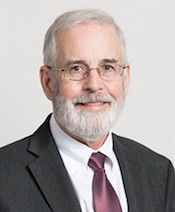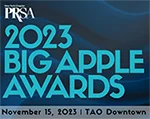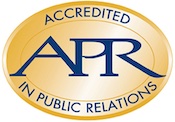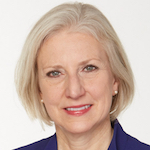 |
The proposal to sub “communications” for “PR” in most places in the PRSA bylaws at the Oct. 8 Assembly is a blow not only to PR but to PR and communications courses offered by colleges.
If the world’s largest PR organization has lost faith in the value of PR as a function, why should teenagers be enticed into studying PR or its distant cousin, “communications?”
PR courses have long been under attack by some PR profs themselves, working PR people, and consultants who feel such courses don’t belong in college. Employers are looking for grads who spent four years in legitimate academic subjects.
|
|
Boston University PR Prof. Donald Wright told the Arthur W. Page Society in 2007 that grads of PR degree programs only account for 10-15% of then recent hires.
He conducted research with the help of Patrick Ford of Burson-Marsteller, Rob Flaherty, Ketchum, and Michelle Hinson, Institute for PR.
They found that, most of the time, agencies and major corporations favor grads who took liberal arts, business and other academic disciplines.
Princeton Review Urged Liberal Arts
The Princeton Review in 2007 said college students interested in PR should take liberal arts and writing courses rather than PR courses.
PR, it said, needs people who can "communicate well in print, in person and on the phone." The Review claims that half of those bound for college consult one or more of its products. These include preparation for the SAT and other tests, an annual listing of the "best" colleges, and an annual ranking of the "best" party colleges.
|
|
Tom Harris, co-founder of Golin Harris, author of The Marketer's Guide to PR, who taught 14 years in the master's program in Integrated Marketing Communications at Northwestern University, "agreed 100%" with the Review.
Don’t Take “Vocational” Subjects
Said Harris: "I wouldn't waste my precious time in undergraduate school on vocational subjects like advertising or PR. This is the greatest time in life for young people to learn about the world in which we live and work. I was an English major at the University of Michigan and always looked kindly on English majors when I was hiring college grads."
He said, "College should be about learning to think, solve problems and communicate" but life should not be "all work." He urged undergrads to take some courses in art and music. Subjects like psychology, sociology, history, political science and economics are "invaluable to an educated person," he added. PR and communication profs should convert to teaching such subjects.
PRSA Mistake Was Pullback from Ethics
The advice of the Princeton Review and Harris is even more relevant today when there is such confusion over the role of PR.
There is no confusion over what happened to PRSA in the past 17 years that stymied its growth. Membership of 21,000 is only slightly above the 19,600 it had it 2000.
The Society in 1999 cancelled its enforceable Ethics Code that had been a bulwark since the 1950s. In many years, tens of thousands of dollars were spent trying cases and giving members ethical guidance. Spending on “ethics” fell to almost zero--$945 in 2016 on total expenses of $11.5 million.
Only one of the 55 or so staff members is a member of PRSA—PR director Laurent Lawrence. The 1980 regime of Patrick Jackson decreed that administrators would staff h.q. with minimal PR people. About ten staffers with PR or journalism backgrounds were let go.
Mark of a Profession Abandoned
Staff thought it could easily dispense with “ethics.” But lack of an enforceable code demolished any claims of PR being a profession. Doctors, Lawyers and CPAs have elaborate Code enforcement mechanisms
As a result of the ethics pullback, major companies and PR firms deserted PRSA in droves to The Arthur W. Page Society, PR Council and (PR) Seminar, among others. New York Women in Communications exploded to 2,200 members, leaving the PRSA/New York chapter in the dust with about 600 members.
Instead of execs from blue chips such as Texaco, American Can, Pacific Gas & Electric and Reynolds Metals Co. holding the top elected PRSA spot, it went mostly to solo practitioners. Members gave up the CEO title to the staff—something unthinkable in medical, legal and CPA assns. Staff and "educators" now dominate PRSA.
Changing Label Doesn’t Change Contents
PRSA leaders and staff think they can sprinkle “communications” throughout the bylaws and thus broaden the Society’s appeal.
This is like changing the label on a can of soup that had sprung a leak. The contents are poison and no amount of label-changing will cure that.
The Society must restore its Board of Ethics and start spending and speaking out on ethical issues. It must go after misbehaving members who are exposed in the public prints.
It must stop its policy of blocking press coverage of events, of refusing to answer press questions, and withholding its 990 financial report until the last minute. It has spent nearly $800K on D.C. law firm Venable in the past ten years but nothing on outside PR counsel which it desperately needs. However, no PR firm could be identified with its obsessive stonewalling.
It must show its good will and dedication to communications by webcasting live the Oct. 8 Assembly when the “communications” bylaw will be debated. The Canadian PR Society webcasts its legislative meeting live for all to see and there is no reason PRSA could not do this.
A number of unethical practices and policies of the Society itself must be changed including its dominance by APR members who hold 16 of the 17 board seats when it should be 3-4 based on the percentage of APR members. The membership of the Assembly should be public record. Proxy voting should not be allowed. One national conference in NYC in 25 years is an insufferable snub of the city. No doubt 20-30 staffers enjoy about two weeks every year with all expenses paid in a distant city.
Reporters should be allowed to join. They were welcome as Silver Anvil judges in the 1970s.

 Donald Wright
Donald Wright Tom Harris
Tom Harris
 PRSA-NY today announced its five honorary co-chairs for its Big Apple Awards ceremony gala slated for TAO Downtown on Nov. 15.
PRSA-NY today announced its five honorary co-chairs for its Big Apple Awards ceremony gala slated for TAO Downtown on Nov. 15. PRSA-NY president Carmella Glover today issued a "heartfelt apology" on behalf of the chapter for her Oct. 14 message that "caused disappointment and hurt to some of our valued members."
PRSA-NY president Carmella Glover today issued a "heartfelt apology" on behalf of the chapter for her Oct. 14 message that "caused disappointment and hurt to some of our valued members." The leadership of Public Relations Society of America is backing a move to change the current “must-have” APR accreditation to “strongly preferred” as a requirement for a seat on its board of directors.
The leadership of Public Relations Society of America is backing a move to change the current “must-have” APR accreditation to “strongly preferred” as a requirement for a seat on its board of directors. Public Relations Society of American today named Linda Thomas Brooks CEO, succeeding CFO Phil Bonaventura, interim chief since July 2019.
Public Relations Society of American today named Linda Thomas Brooks CEO, succeeding CFO Phil Bonaventura, interim chief since July 2019.


 Have a comment? Send it to
Have a comment? Send it to 
No comments have been submitted for this story yet.